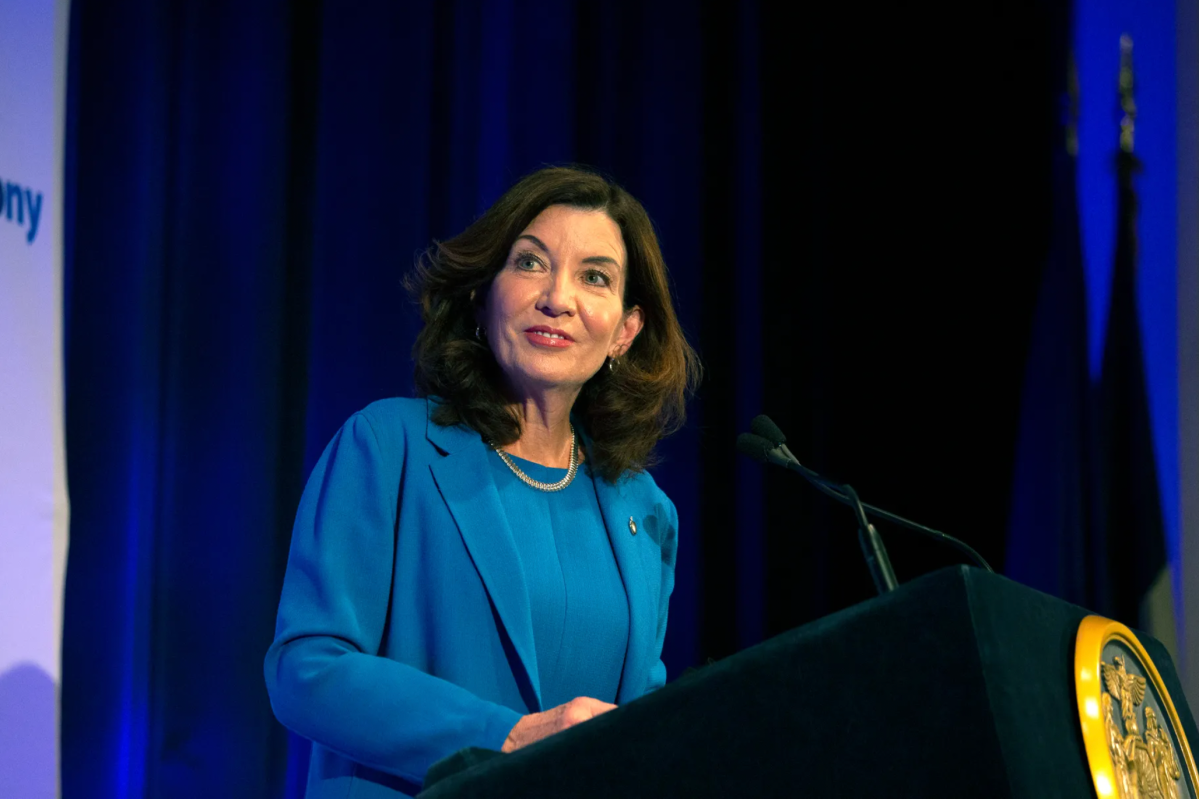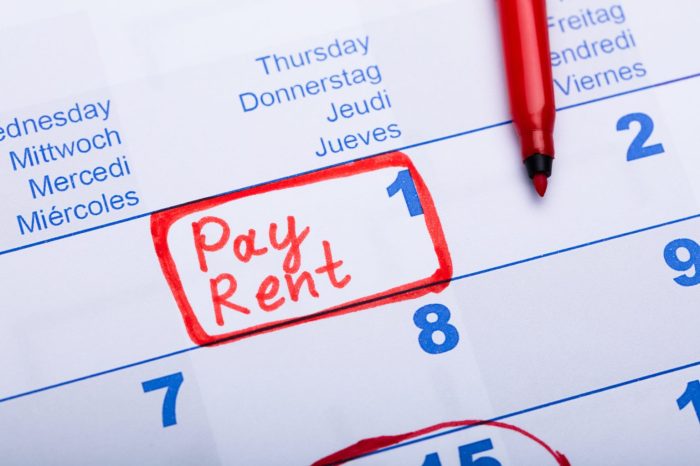This article was originally published on by THE CITY. Sign up here to get the latest stories from THE CITY delivered to you each morning.
Since New York State stopped accepting pandemic rent relief applications, Catholic Charities and the nonprofits it’s working with to help tenants have built a waiting list of 600 city families shut out of help.
And even with the original $2.7 billion in rent relief paid or allocated, the Community Housing Improvement Program, which represents small and mid-sized landlords, estimates that unpaid rent bills statewide total at least $1 billion.
Meanwhile, looming over the rent relief program cutoff is the scheduled end to the state’s eviction moratorium on Jan. 15 — with most experts expecting the Hochul administration to allow evictions to resume as the two-year anniversary of the pandemic shutdown nears.
“Closing the portal was a mistake,” said Ellen Davidson, an attorney at the Legal Aid Society of New York. “What they say is they don’t want to give people false hope [by accepting new applications] but I think there is a way to message that people who are applying now may not receive rent relief but should apply anyway.”
The almost universal opposition to the state’s decision among tenant and landlord advocates as well as other experts represents what some see as one of the first major missteps by Gov. Kathy Hochul, who took office three months ago this week.
 @NewYorkStateAG/Twitter
@NewYorkStateAG/TwitterThe controversy could reverberate as she faces challenges from progressive candidates like state Attorney General Letitia James and Public Advocate Jumaane Williams in the 2022 Democratic gubernatorial primary.
The relief crisis began with the state’s surprise announcement on Friday, Nov. 12, that it would stop accepting applications that Monday under the state’s Emergency Rental Assistance Program (ERAP), which can pay up to 15 months of back rent for New Yorkers hurt by the shutdown. The state argued it had no more money for the program.
As of Nov. 19, the state had paid just over $1 billion to landlords and has provisionally approved other applications totalling another $1 billion. Officials estimate that ERAP needs another $1 billion for pending applications and help for public housing residents.
A History of Woes
The program got off to a rocky start under then-Gov. Andrew Cuomo with a complicated application process, the need to coordinate the filing of a series of documents by both tenants and landlords, and numerous technological problems with the program’s web site.
Hochul promised to fix the program — and contends things are running more smoothly.
“Since taking office in late August, Gov. Hochul has worked aggressively to get pandemic relief into the hands of people who need it most — more than quintupling rent relief payments and putting New York in prime position to receive additional funding from the U.S. Treasury,” said Anthony Farmer, a spokesperson for the Office of Temporary Disability Administration, which is in charge of rent relief.
“New Yorkers are still in need of emergency rental assistance and OTDA is committed to helping people recover from the economic devastation caused by the pandemic and remain stably-housed,” he added.
 Ben Fractenberg/THE CITY
Ben Fractenberg/THE CITYTenant advocates say the changes are not enough.
“We have clients who filed for assistance in June who have not been notified about their application,” said Lakisha Morris, director of operations for Catholic Charities Community Services, which the city hired to help tenants navigate the process.
There is no definitive study of the amount of unpaid rent in New York. The Community Housing Improvement Society, though, has been surveying its members, most of them owners of small-to-medium-sized rent-regulated apartment buildings.
CHIP estimates that 100,000 renters who are in arrears statewide have not applied for help and that they owe around $1 billion, all told.
Billion-Dollar Backfire?
The federal government is expected to soon reallocate money from states that have not distributed all the funding they have received. Hochul has asked for an additional $1 billion — although closing applications may backfire in that effort.
“What better way to make the case than to show how many people are applying on a daily basis,” said Davidson. “Applications have never slowed down.”
Advocates also note a tenant is supposed to be protected from eviction while an application is being processed.
 Ben Fractenberg/THE CITY
Ben Fractenberg/THE CITY
A coalition of 18 groups representing landlords, tenants and community groups issued a statement last week calling on Hochul to reopen the portal. Only the Rent Stabilization Association didn’t sign on to the plea, saying the priority should be processing pending applications.
Some advocates said Hochul has other options if the feds don’t come through.
She could add money to the fund since state tax revenues exceeded initial projections by $7.6 billion through September. The state also could also pump more money into the Landlords Rental Assistance Program, which was funded with only $250 million. That program works to pay rent for tenants who did not apply for help themselves.
Giving ‘One-Shots’ a Shot
Tenants who face eviction may be able to have their rent covered by so-called “one-shot” aid in which the city’s Human Resources Administration pays off the back rent as long as the landlord has initiated a court case.
However, advocates note that the payments require tenants to demonstrate they have the financial ability to pay the rent in the future and that the one-shot is a loan and the city can demand repayment eventually.
The Hochul Administration could take two other steps to ameliorate the crisis, said Eric Lee, director of policy and planning for Homeless Services United, a coalition of nonprofit groups.
‘Every day there will be stories about someone losing their home.’
The governor could sign a bill that passed the legislature that raises the rent levels to qualify for a separate Family Homelessness and Eviction Prevention Supplement (FHEPS) rental assistance program.
This voucher is primarily used to prevent evictions of families with minor children, including survivors fleeing domestic violence, the primary cause of family homelessness.
The administration also could support proposed legislation that would abolish repayments of one-shot deals.
What lies ahead if the eviction moratorium is lifted and no further aid becomes available is clear to tenant advocates.
“Every day there will be stories in the media about someone who is losing their home,” warned Davidson.
THE CITY is an independent, nonprofit news outlet dedicated to hard-hitting reporting that serves the people of New York.



































